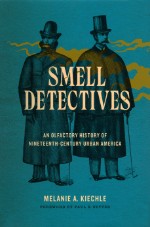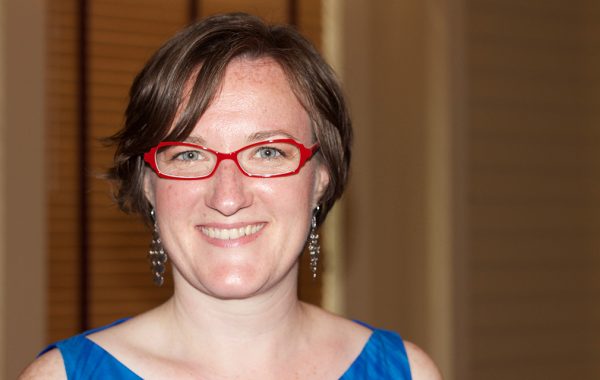Melanie Kiechle ’03 wants people to pay attention to their noses — they could be telling us something important.
In her new book, Smell Detectives: An Olfactory History of Nineteenth-Century Urban America, Kiechle outlines momentous periods of time during which trouble is in the air and scent has sounded the alarm bells. Kiechle — an assistant history professor at Virginia Tech — also cites more recent disturbing events. In short, she concludes, if you smell something, say something.
Following her nose. “I became interested in the new work that people were doing with the senses in history. I’ve always been interested in what the past was like, and thinking about the senses was a great way to get into that. No one else was doing much work researching smell throughout history, so I decided I should.”
 Sniffing out information. “I did keyword searches in newspaper databases and lots of different places looking for smell words. I figured out a few things. For one, I felt like I had cracked a code. They had more words in the 19th century that they used meaning ‘smell’ than we do today, such as ‘effluvia.’ I also figured out that usually when people said something was ‘offensive,’ they meant that it was smelly. When cities were regulating the ‘offensive trades’ (their phrase), they were regulating industries that produced foul odors.”
Sniffing out information. “I did keyword searches in newspaper databases and lots of different places looking for smell words. I figured out a few things. For one, I felt like I had cracked a code. They had more words in the 19th century that they used meaning ‘smell’ than we do today, such as ‘effluvia.’ I also figured out that usually when people said something was ‘offensive,’ they meant that it was smelly. When cities were regulating the ‘offensive trades’ (their phrase), they were regulating industries that produced foul odors.”
Common sense. “Smell is really important, but we don’t spend much time thinking about it. I discovered that people used their sense of smell to protect their health, and how they weren’t necessarily thinking about it but were constantly reacting to what they smelled. It was instinctual.”
Then and now. “What’s producing odors today isn’t what was producing odors in 19th-century cities. Chicago was all slaughterhouses, fertilizer factories, and everything else connected to that, and it smelled. Chicago today doesn’t smell like that because it doesn’t have that same meatpacking industry any longer.
“On the other hand, there are things that have endured that were created in the 19th century because of smells, like Central Park. One of the ideas behind Central Park was that New York City needed a breathing space — they called it an ‘urban lung.’ They thought that they needed to have a reservoir of fresh air. People in New York today don’t think about Central Park necessarily as a breathing space, but people still go there for fresh air.”
What’s that smell? “We have a pretty powerful diagnostic tool in our noses. In 2014, Charleston, W. Va., smelled like licorice, which alarmed residents and led to the discovery that the water supply was being compromised by a chemical leak. If people hadn’t complained about the smell, it would’ve taken a lot longer to find the leak.”
Favorite scent. “Lilacs. From the time I was a kid, I’ve always stopped when I smelled lilacs. It’s a wonderful smell I associate with spring. They’re always in bloom on my birthday.
“In high school, I read Walt Whitman’s poem When Lilacs Last in the Dooryard Bloom’d and always thought it was about them blooming. As I started researching smell, though, I learned that the lilacs were in bloom when Whitman found out that Lincoln was assassinated. He’d always loved lilacs, but they never smelled the same to him after that moment. It’s interesting to consider how your feelings about a scent can change when something significant happens.”







